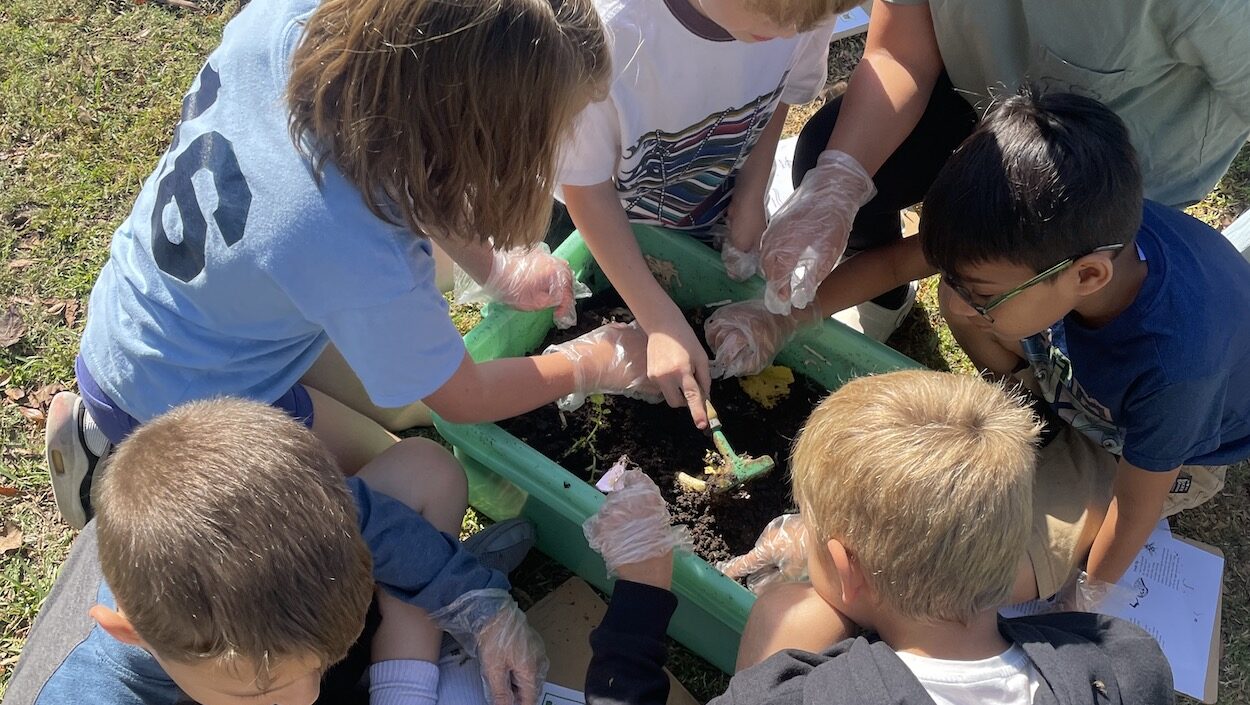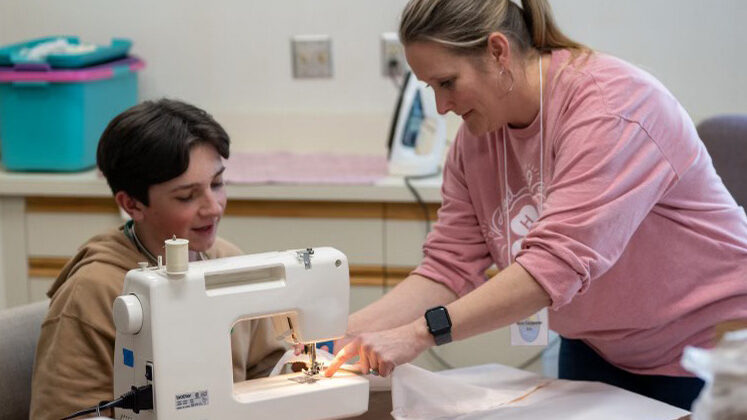Garbage to Gardens
An innovative program in New Hanover County transforms cafeteria garbage once destined for the landfill into compost for school gardens and outdoor spaces.
Lunchtime is learning time at Winter Park Elementary and D.C. Virgo Preparatory Academy in Wilmington.
No, the kids aren’t burdened with extra reading, writing or arithmetic during the daily break. They get to enjoy their meals and time with friends. But afterward they employ important lessons in environmental stewardship.
Rather than dumping all the detritus from the meal into a big trash can, the students separate it. Recyclables go into bins. Liquids are poured off. Organic food waste goes into a separate container that’s shipped to the county composting unit.
“When you can close that loop and have the students connect what we are growing in this garden out of this compost, it’s not waste, it’s a resource.”
“The young kids really jump into it. There’s a clear energy and excitement about having the opportunity to be a waste ambassador,” says Matt Collogan, N.C. Cooperative Extension consumer horticulture agent in New Hanover County. “Before the program was implemented, 10 trash bags would be going to the dumpster after every cafeteria session. Now we’re looking at one bag.”
The Extension center in New Hanover County began the Garbage to Gardens program in 2019 as part of a multifaceted effort to reduce waste going to landfills.
“New Hanover County has 28 years left at current fill rates before it is filled to the brim,” Collogan says. “When Hurricane Florence happened (in 2018), we lost about 13 years of lifespan off the landfill in one blow. So we are two big storms away from having no landfill.”
State law prohibits new landfill permitting in coastal counties, which will face new costs and logistical challenges to dispose of their waste when landfills are saturated.
Extension’s response was to increase sustainability efforts, both at the county center at the New Hanover County Arboretum—which won the 2023 Sustainability Award from the American Public Gardens Association—and in the community, through recycling and composting.
“Any time we can divert landfill waste to some other source, we are saving our taxpayers dollars. That’s why composting is huge,” says County Extension Director Lloyd Singleton. “We did a waste characterization study about four years ago. We found that 40% of what was going to our landfill could be composted, and about 20% of it could be recycled. By really emphasizing that, we’ve diverted a lot of waste from the landfill.”
The school pilot program began in 2019 at Winter Park Elementary.
“The Garbage to Gardens name was coined by the students,” Collogan says, noting that the food that the students divert comes back to the schools as compost to be used in outdoor learning spaces and school gardens.
“Before the program was implemented, 10 trash bags would be going to the dumpster every cafeteria session. Now we’re looking at one bag.”
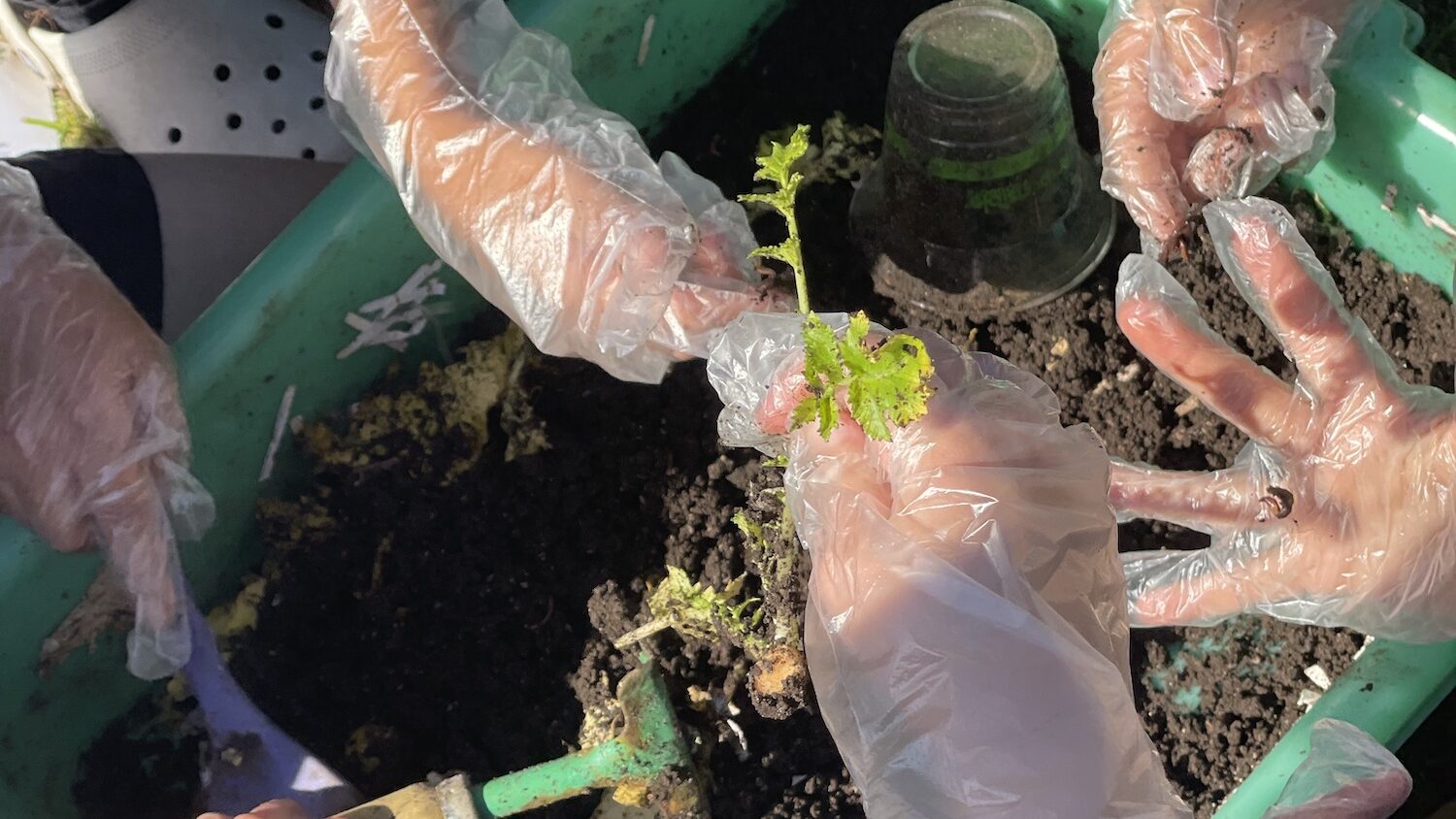
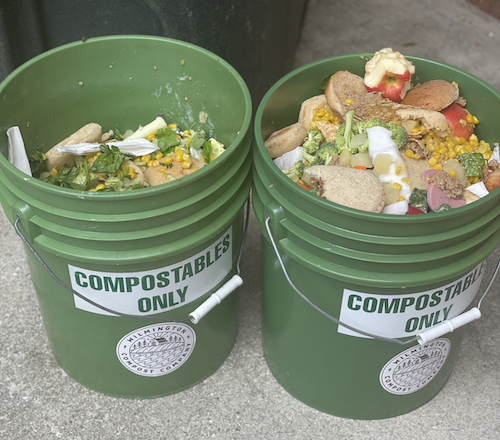
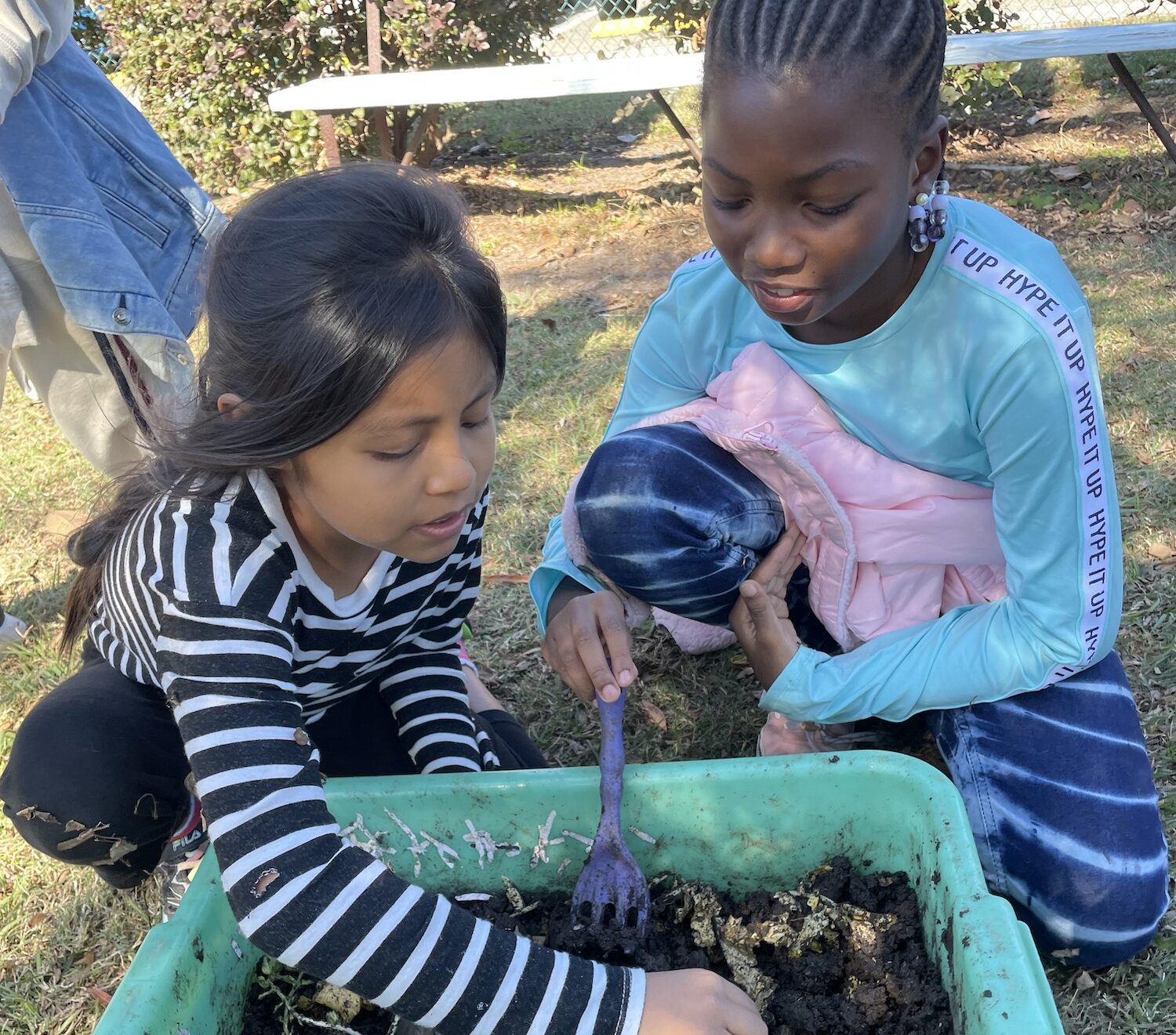
D.C. Virgo was added in 2021, when part-time coordinator Kat Polk came on board. A $180,000 U.S. Department of Agriculture grant will fund a full-time coordinator and expansion into 18 schools in the county.
NC State Extension is also well positioned to grow Garbage to Gardens beyond New Hanover County.
“The state is looking at this very seriously, that we should have a systemic food waste diversion program in our schools,” Collogan says. “We’ve produced a getting-started guide that any school can use, starting with low cost and little effort, all the way up to the Cadillac version of paying someone to haul off the diverted food waste.”
The idea started to form in 2017, when New Hanover County purchased an in-vessel composting unit for the landfill. The unit, affectionately named Huckleberry, began taking in food waste from the University of North Carolina Wilmington, debris from construction sites and yard waste.
“Any time we can divert landfill waste to some other source we are saving our taxpayers dollars. That’s why composting is huge.”
“They mix in wood chips from their construction demolition, gypsum from drywall, and yard waste diversion,” says Collogan, who serves on the Coastal Composting Council, a regional chapter of the North Carolina Composting Council. “They have honed their recipe. It produces a quality compost that goes back out to the community. It’s used on parks and school grounds, and residents can get some for their gardens if it’s available.”
The Garbage to Gardens program includes instruction about composting—what it is, how it works and the benefits to the soil and to gardening.
“At the basic level, we’re teaching kids how to sort. But in doing so we’re connecting them to their food,” Collogan says. “The food that they divert gets composted and comes back to the school to be used in their outdoor learning spaces, their school gardens. When you can close that loop and have the students connect what we are growing in this garden out of this compost, it’s not waste, it’s a resource. It’s valuable.”
The program blends many of NC State Extension’s core strengths. Agents work with youth in every county of North Carolina, primarily through 4-H. A research-based textbook developed especially for Extension Master Gardener Volunteers and home gardeners includes a chapter on composting. Instruction is a vital part of the mission, whether on the farm through agriculture agents, in the kitchen with food and consumer sciences agents or through the thousands of educational programs across the state.
“Extension is education,” Collogan says. “Where better to share the mission of education than in a K-12 setting? Extension has a role to play there.”
In the future, the program has the potential to save even more space in the landfill and dollars for the county.
Compostable sporks could replace single-use plastic forks and spoons.
“The single spork might cost more but it’s less than the two pieces and it reduces the contamination potential,” Collogan says. “One of the biggest contaminants is individual sauce packets, ketchup packets. So why not get paper ramekins and a dispenser? There’s room for improvement.”
- Categories:
